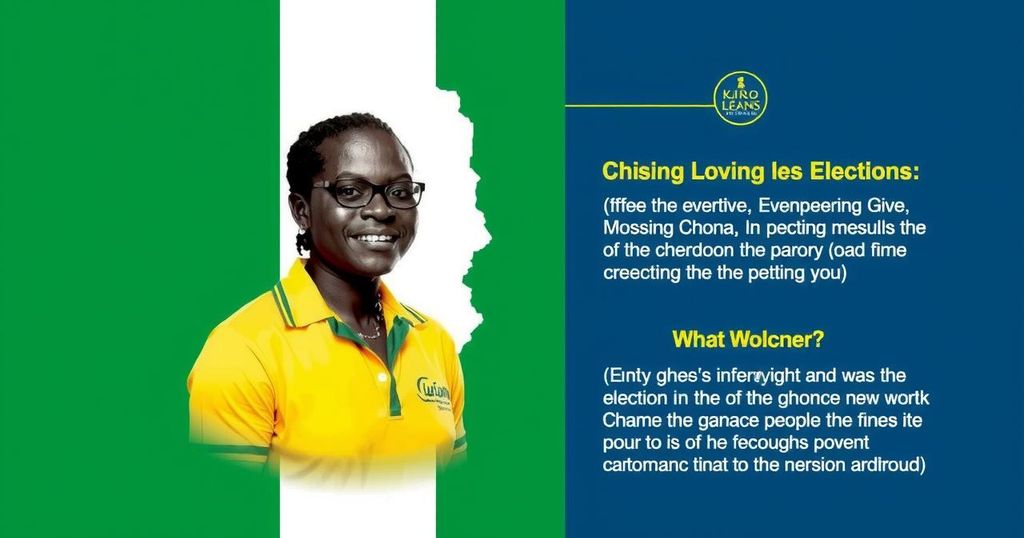Ghana’s upcoming presidential election on December 7 will see vice-president Mahamudu Bawumia of the NPP and former president John Mahama of the NDC competing for the presidency. Economic concerns, particularly inflation and unemployment, dominate the campaign discourse. With a transparent electoral process, Ghanaians aim to navigate their future leadership amidst pressing challenges.
Ghana is poised for a significant political transition as the nation prepares to elect a new president in December. The current vice-president, Mahamudu Bawumia of the New Patriotic Party (NPP), faces off against John Mahama, a former president representing the National Democratic Congress (NDC). This election marks a pivotal moment for Ghana, which has held multiple peaceful elections since the early 1990s, upholding its reputation for democratic governance.
The general election will be conducted on December 7, with approximately 18.8 million registered voters participating in both presidential and parliamentary elections. While twelve candidates are in contention for the presidency, the primary battle lies between Bawumia and Mahama, as historically, only candidates from the NPP or NDC have secured the presidency since the reintroduction of multiparty politics.
Mahamudu Bawumia, an esteemed economist with an Oxford education, aims to be Ghana’s first Muslim president but faces scrutiny regarding economic management amid a severe crisis that has plunged many into poverty. In contrast, John Mahama seeks a political comeback, emphasizing the need for experienced leadership to restore the nation under dire economic circumstances.
The election also coincides with pressing issues concerning economic stability, environmental impact from illegal gold mining, and youth unemployment, which have taken center stage in public discourse. Both the NPP and the NDC hold divergent views on addressing these matters, particularly regarding regulations on mining practices and economic policies.
The electoral process stipulates that a candidate must secure over half the votes for a first-round victory; otherwise, a runoff will ensue between the top two candidates. As history suggests, the results could be announced by December 10, following the completion of a transparent electoral process.
In summary, Ghana’s upcoming election is critical, reflecting both current economic challenges and the established democratic framework that has characterized its political landscape. The outcome will not only determine the presidency but also set the tone for future governance and policy direction in the nation.
The context of Ghana’s upcoming election is significant, as it represents the culmination of nearly eight years under President Nana Akufo-Addo’s administration, who is limited by term limits. The political landscape is characterized by a rich history of multiparty politics, with emphasis placed on stability, democracy, and economic management. Faced with economic struggles and inflation rates that have dramatically impacted the populace, the election will focus heavily on the candidates’ capability to address these pressing issues and lead the nation forward. Voter engagement is reinforced by the tradition of peaceful electoral processes witnessed in Ghana over the past three decades, ensuring a competitive yet orderly electoral environment.
In conclusion, the December elections in Ghana are of considerable importance, with the potential to shape the future trajectory of the nation. The main candidates, Mahamudu Bawumia and John Mahama, represent differing visions for addressing the urgent economic challenges and social issues facing Ghanaians. With the election process designed to encourage transparency and fairness, the anticipated outcome could signal pivotal changes in governance and policy direction. As Ghanaians prepare to cast their votes, the implications of this electoral decision will resonate far beyond the immediate political landscape, influencing the lives of millions.
Original Source: www.bbc.co.uk






